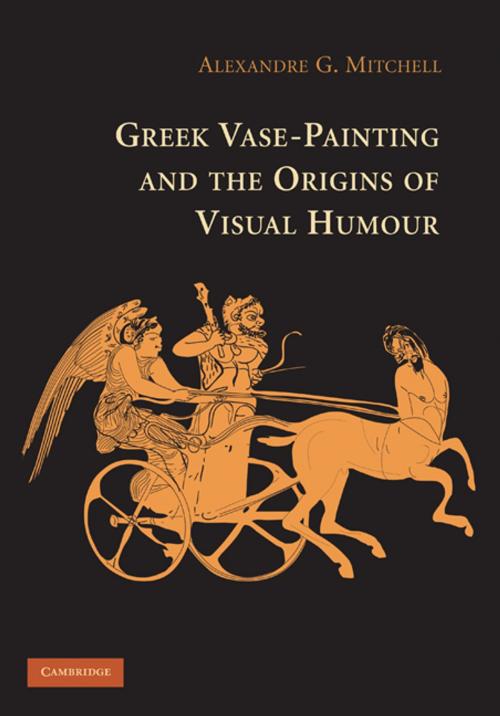Greek Vase-Painting and the Origins of Visual Humour
Nonfiction, Art & Architecture, Art History, General Art, History| Author: | Alexandre G. Mitchell | ISBN: | 9781107720237 |
| Publisher: | Cambridge University Press | Publication: | August 24, 2009 |
| Imprint: | Cambridge University Press | Language: | English |
| Author: | Alexandre G. Mitchell |
| ISBN: | 9781107720237 |
| Publisher: | Cambridge University Press |
| Publication: | August 24, 2009 |
| Imprint: | Cambridge University Press |
| Language: | English |
This book is a comprehensive study of visual humour in ancient Greece, with special emphasis on works created in Athens and Boeotia. Alexandre G. Mitchell brings an interdisciplinary approach to this topic, combining theories and methods of art history, archaeology and classics with the anthropology of humour, and thereby establishing new ways of looking at art and visual humour in particular. Understanding what visual humour was to the ancients and how it functioned as a tool of social cohesion is only one facet of this study. Mitchell also focuses on the social truths that his study of humour unveils: democracy and freedom of expression; politics and religion; Greek vases and trends in fashion; market-driven production; proper and improper behaviour; popular versus elite culture; carnival in situ; and the place of women, foreigners, workers and labourers within the Greek city. Richly illustrated with more than 140 drawings and photographs, this study amply documents the comic representations that formed an important part of ancient Greek visual language from the sixth to the fourth centuries BC.
This book is a comprehensive study of visual humour in ancient Greece, with special emphasis on works created in Athens and Boeotia. Alexandre G. Mitchell brings an interdisciplinary approach to this topic, combining theories and methods of art history, archaeology and classics with the anthropology of humour, and thereby establishing new ways of looking at art and visual humour in particular. Understanding what visual humour was to the ancients and how it functioned as a tool of social cohesion is only one facet of this study. Mitchell also focuses on the social truths that his study of humour unveils: democracy and freedom of expression; politics and religion; Greek vases and trends in fashion; market-driven production; proper and improper behaviour; popular versus elite culture; carnival in situ; and the place of women, foreigners, workers and labourers within the Greek city. Richly illustrated with more than 140 drawings and photographs, this study amply documents the comic representations that formed an important part of ancient Greek visual language from the sixth to the fourth centuries BC.















